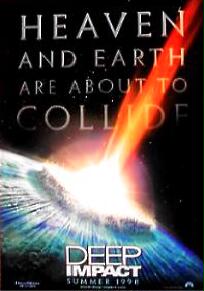The President's Address Tonight
 | |
 | |
 | |
 |  |
 |  |
President Bush will harangue us tonight on the importance of supporting the occupation of Iraq and the continuing city-destroying war against the insurgents. We can count on hearing Christian metaphors embedded in patriotism, with an exclusionary and unapologetic God Bless America at the end.
Bush's evangelical Christianity is a topic for study among America academics and experts around the world. Yesterday, Sébastien Fath of the French national thinktank, CNRS, addressed a Lebanese audience in Beirut on the slow transformation of American evangelicals in the United States towards a decidedly un-Christian Fascistic phalange under the leadership of the President.
Before getting into Fath's address, the American scholar Robert O. Paxton draws a portrait of hypothetical US fascism in his book, Anatomy of Fascism:
The language and symbols of an authentic American fascism would, of course, have little to do with the original European models….No swastikas in an American fascism, but Stars and Stripes and Christian Crosses….Americans might support an enterprise of forcible national regeneration, unification and purification…Would Protestant fundamentalism play this function for Americans? [Stanley G.] Payne has argued fascism requires the space created by secularization, because a religious fascism would inevitably limit its leader not only by the cultural power of the clergy but by “the precepts and values of traditional religion.”Fath warns exactly of this: the continuing secularization of evangelical faith under the guidance of George Bush to permit his unlimited actions in the War on Terror.
From Mariam SEMAAN writing for L'Orient-Le Jour:
In a series of conferences sponsored by the USEK History Institute, Mr. Sébastien Fath, fellow of the National Center for Scientific Research (CNRS, Paris) gave a scholarly exposition on Religion and Politics in the United States: The New Messianism.
In an initiative promoted by Mr. Dominique Avon, Mr. Fath has analyzed the American notion of secular religion, at the heart of which lies messianism. This generic religion, which sanctifies communal identity, has evolved over time and is about to undergo another transformation with a push from George W. Bush.
In order to cement a heterogeneous melting pot around communal beliefs, the United States has developed a sort of civic religion--a mix of convictions centering on faith, idealism and extreme patriotism. This untraditional religion, whose goal is to create a communal identify has five characteristics: The white Anglo-Saxon Protestant heritage of the Founding Fathers, emphasis on faith and prayer, individualism, optimism and a necessary belief in messianism. In constant evolution, it adapts itself to changes in US society and undergoes gradual change without attachment to particular religious family. Over its history, it has exhibited certain preferential orientations, directly linked to groups in power and to powerful lobbies.
Intended to unite a multi-confessional nation in times of crisis, it was deployed in the aftermath of WWI in the presidency of President Wilson and most recently following the September 11th attacks under the presidency of George W. Bush.
Between 1919 under Wilson and 1950, America's civic religion underwent the influence of the mainstream religions, that is, long-established Protestant sects ( Presbyterianism, Episcopalianism, Methodism...)which imparted optimism, humanism and the principle of self-restraint founded on a transcendent God.
Between 1960 and the end of the 20th century, the mainstream churches became marginalized by the evangelical churches, a Protestant faith drawing its inheritance from the margins of the established churches—a Protestantism marked by religious revival or rebirth representing a radical reorientation of life following an extraordinary religious experience. The Born-Again-Christians are especially pious, which contributes a moralizing fervor to civic religion. Under George W. Bush, who since his meeting with preacher Billy Graham presents himself as an evangelical, the United States has aligned itself along the same axis. The President of the United States considers his presidential mandate a divine vocation. His election and reelection are due in large part to evangelical voters.
But for Sébastien Fath, certain indicators point to the hypothesis that civic religion is entering a new phase in the 21st century under President Bush. For Mr. Fath, the President seems to have fostered an unedited version of civic religion marked by extreme nationalism and the uni-polar superiority of the United States.
The idea of messianism, so dear to the Americans, is at the heart of this change, which can be defined as the conviction that America is the bearer of an eminent mission to the world.
In the times of President Wilson, the messianic message contained a universal idealism hostile to nationalism and which doubled as a self-restraining principle disassociating America from the Divine. Today, in the presidency of George Bush, idealism and nationalism go hand-in-hand, and is it far apart from the principle of multilateralism fostered by Wilson. Imperial United States manifests itself everywhere today: from the refusal to recognize the role of the United Nations and the International Criminal Court, to the denunciation of the Kyoto Protocol, to the cancellation of the ABM treaty… As to the idea of self-restraint, it seems to have disappeared with the recasting of the 21st century as the American Century, based primarily on US interests. What is good for the United States is good for the world.
A more secularized, third phase of civic religion in which America itself is the divinity has begun to appear on the horizon—as if America had become its own absolute, explains Mr. Fath. George Bush, as bandleader, is mobilizing this new concept to his own benefit despite the opposition of numerous religious leaders to it and to preemptive warfare as well.
The current notion of messianiasm, divorced from its judeo-christian roots, is secularizing itself and has adopted an uniquely American style. For example, the US film industry, in producing films like Deep Impact which exalt US superpower, is a formidable means of communicating Bush’s political messianism.
Fath says the transformation is not irreversible. The Christian faith of George Bush could even become a safety net, because the President firmly believes in the utopia of a transcendent God to which even America, like everyone else, must submit. His faith is after all a form of self-restraint.
Mr. Fath ended his presentation with a paradox. Never before has a president (George W. Bush) displayed so much newborn Protestant faith with such zeal for publicity. However, never has the civic religion which Bush is promoting been further from Christianity. He was elected thanks to voters of every faith. He leads a project which conflicts in many ways with churchly rhetoric.


0 Comments:
Post a Comment
<< Home